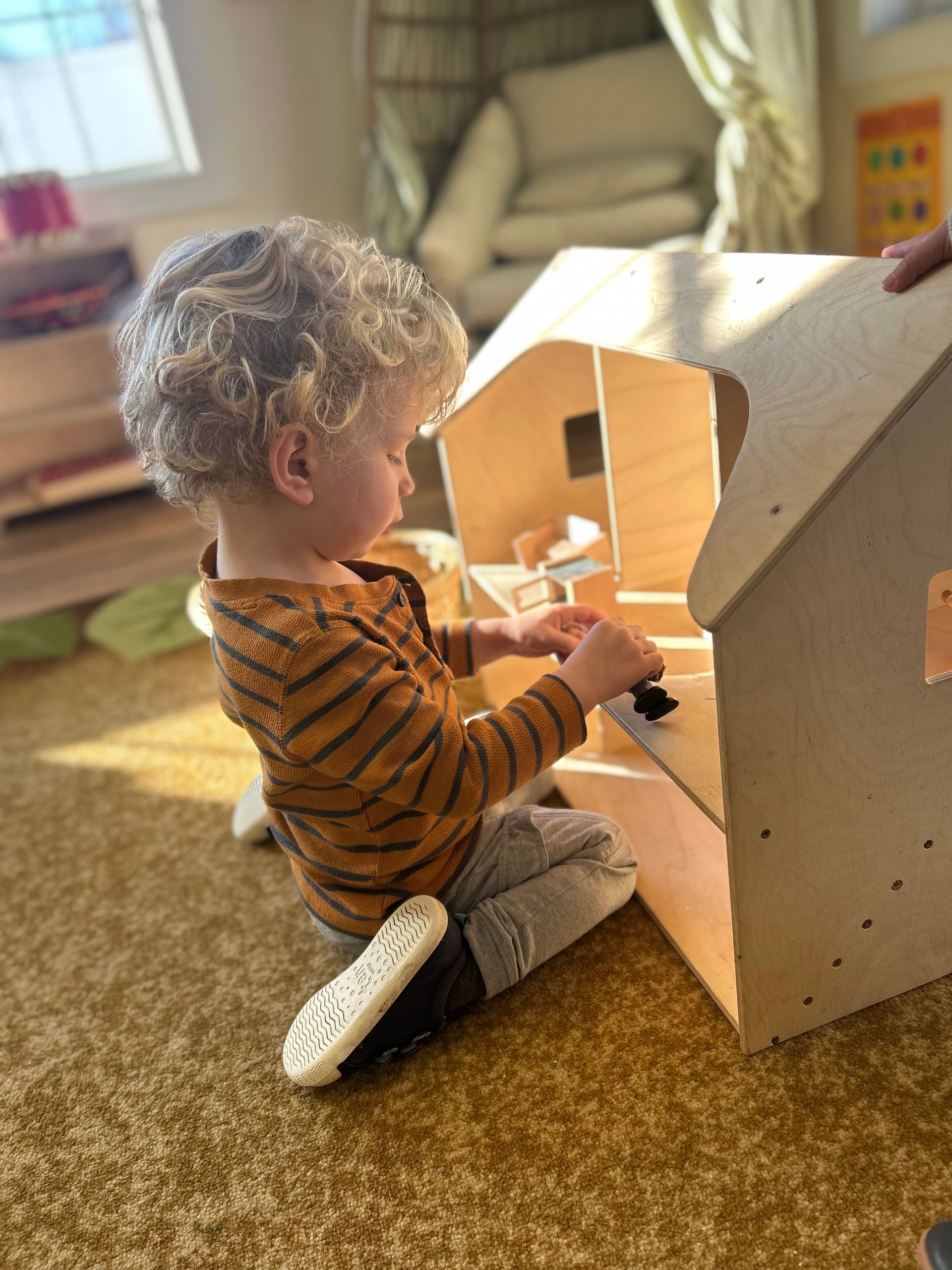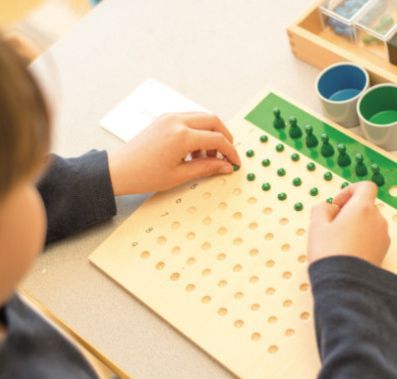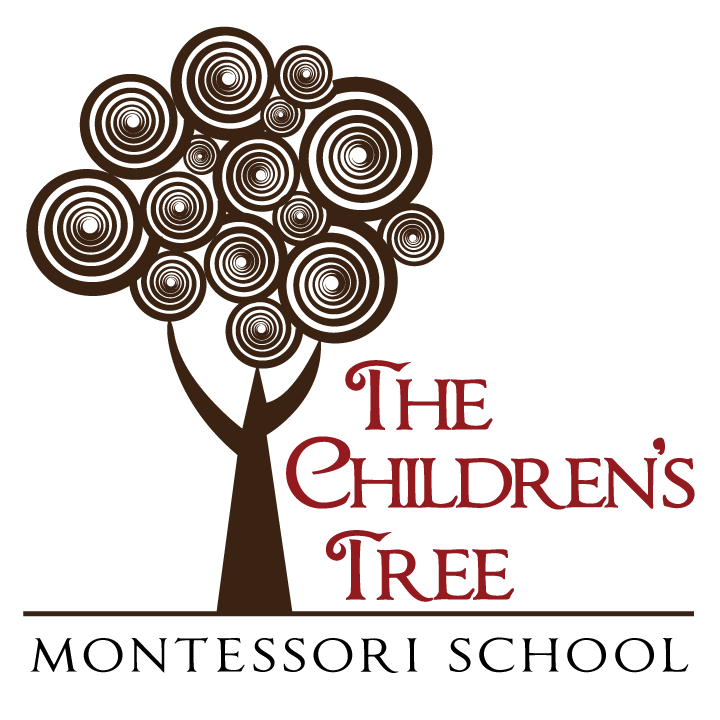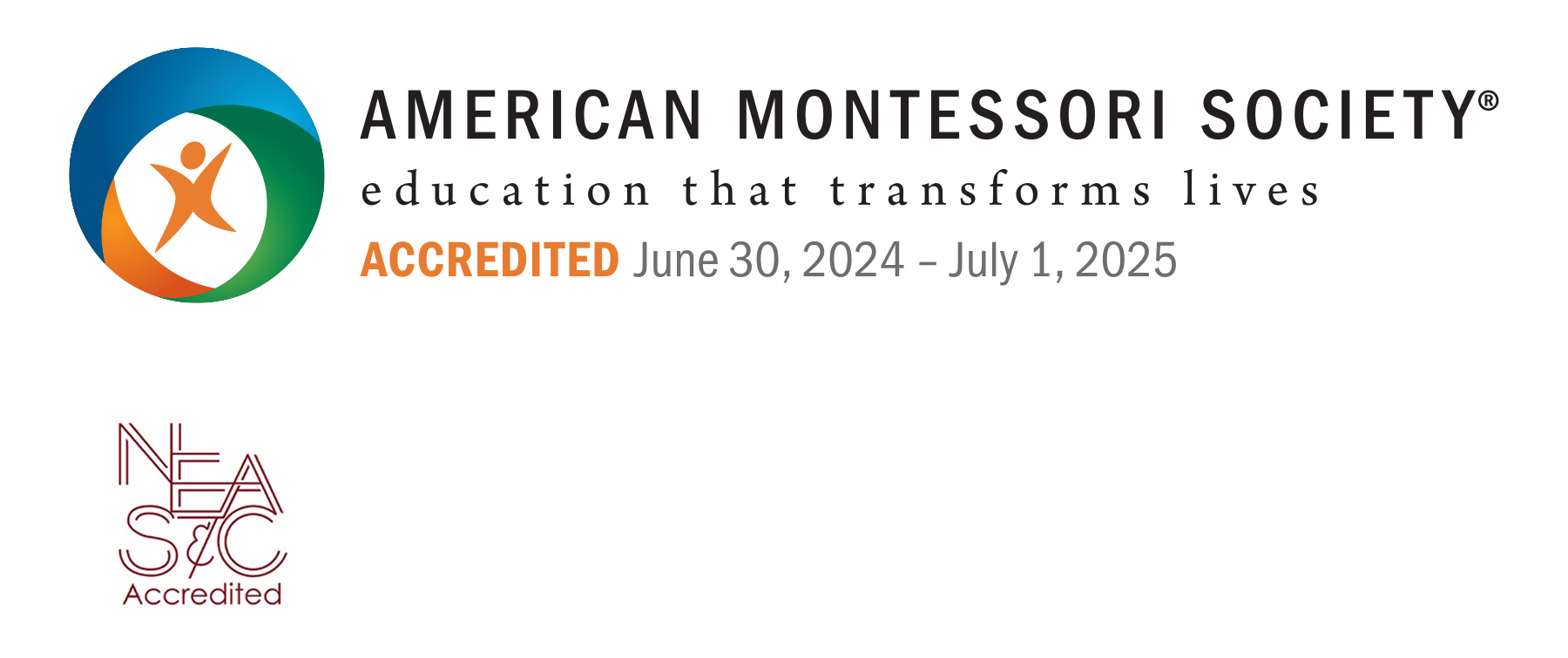Benefits of enrolling your child in a Montessori School

The Montessori approach has been around for a long time. Today, the understanding of this method is growing, and it’s gaining popularity as parents are becoming more aware of the benefits that it can have on their children.
What is a Montessori school?
Montessori is a system of education that provides holistic education by emphasizing the child’s physical, intellectual, and emotional development. It focuses on the process of learning rather than the tools used to teach.
Montessori schools expose their students to a wide range of activities, such as fine arts, sports, language development, social interaction & cooking, etc. Moreover, they provide sophisticated educational materials.
What are the Benefits of Having your Child Enroll in a Montessori School?
The following list some of your child’s benefits when enrolled in a Montessori school.
- Development of Self-Discipline
This is one of the most important aspects that your child can gain from being in a Montessori school. Children learn to set goals, stay focused, and complete tasks that they may find difficult at first. This skill is crucial for your child as they grow older and will serve them very well in their future life. If your child is struggling with a school course, you may ask the teacher whether they have encountered this problem before. In many cases, the children struggle because they do not understand why they need to achieve the desired outcome and have not developed the discipline to work hard enough to complete their assignments or projects.
In some cases, the parents are responsible for the child’s poor performance in school because they have not helped their child set goals and develop strategies to complete tasks. You can help your child with this at home while they complete their assignments. You can get them started by outlining what they need to do and then working with them to complete these tasks. To gain good results, make sure that you give your child both encouragement and praise when they succeed at something that they find difficult at first.
2. Development of creativity
Children learn to be creative through their activities. They are encouraged to use
their imagination and think outside the box when completing tasks or activities. If a child can think creatively, this will help them in many situations later in life, such as business, research, writing, etc. Studies have shown that creativity has many benefits.
Montessori is one of the best environments for children to be creative and learn skills. Montessori naturally teaches creativity, opposed to teaching it unnaturally. The environment is designed with a lot of freedom and allows the child to express themselves through their environment, such as what they are eating, what they are doing, how they arrange their objects, how they organize a room, etc. The child is encouraged to express themselves freely in their environment, and in turn, they learn how to think creatively on their own.
Educating children is the goal of the Montessori classroom. There are many different types of learning opportunities for children, which Montessori incorporates into its teaching strategies. The curriculum includes arts and crafts, music, practical life, language development, math, and science, all through hands-on experiences.

3. Strong problem-solving skills
Children in Montessori schools can develop their problem-solving skills through the course materials exposed. In addition, the child will learn to be flexible and adapt to different situations.
They will learn new forms of learning and ways of achieving things without an immediate answer.
As the children advance in their Montessori classes, they will be exposed to new materials and activities to promote their learning experience. They will also analyze situations and determine if they need assistance in completing a task. In addition, they will learn how to work independently with little supervision from the teacher.
Students who attend a Montessori school will solve problems through hands-on activities. Children are also encouraged to analyze learning situations and find practical applications for their acquired information.
Montessori Methods also promote creativity and original thinking. Therefore, children can learn about different things through doing, opposed to just listening or looking at pictures or reading materials.
4. Emotional development
Children can express themselves through the materials they see and their activities. This allows them to develop their emotions, communication, and problem-solving skills.
Children who attend Montessori preschools can explore, experiment, learn and grow physically, intellectually, and emotionally. Even though Montessori preschools do not limit children to play materials, they still have a carefully planned curriculum filled with activities that facilitate physical growth while teaching cognitive learning skills.
Play activities are used in the curriculum to help the child learn how to listen and express themselves. This is important because the child will develop a strong foundation for emotional intelligence. A child’s confidence increases by feeling free and exhilarated during the activities.
5. Social development
Children are encouraged to interact with one another when in a Montessori school instead of being segregated. This helps them develop their social skills, empathy, kindness & compassion for others, etc. Other benefits are not walking around under stress, and their attention span is longer. It is also better for their health and mental acuity.
They learn to learn healthily and make meaningful social connections.
Some parents may worry that their child will be too close with other children or too involved with friends, but this is very beneficial. Montessori doesn’t want her child to be isolated from others. It’s about balance & development, not isolation from others.
This is especially true when it comes to toddlers. Toddlers need constant social interaction with others, not just their parents.
6. Language development
Montessori schools expose children to multiple languages, and they are encouraged to use these languages while they are there. This will help them in the future as they will communicate with people worldwide without any issue.
A child who learns in a multicultural environment like this will learn how to respect, accept, and appreciate differences, which will be invaluable for their future success.
In addition to the language skills, a child enrolled in a Montessori school will develop social skills that are vital for the future. They will learn how to interact and engage with people around them. This is something that they would not learn in a traditional school setting.
Because they get to play with children worldwide, they will grow to be open-minded people who do not have any prejudices.
7. Learning at their own pace
A Montessori school does not expect children to be at the same level as their peers. They are encouraged to learn at their own pace and go through the materials they need to achieve what they want. This eliminates the feeling of competition between children in a non-Montessori school.
The Montessori curriculum teaches children essential life skills. Children can realize that their environment is more than just a place to learn and interact with other children and adults. All of these aspects contribute to each child learning at their own pace. They will not compete with their peers, but instead, they will see another person as someone of equal value, which all Montessori students can appreciate.
8. Improved behavior
Children can develop independence and a sense of responsibility by participating in these activities. This will help them become more responsible in the future, and not need to depend on parents and adults for everything. In Montessori schools, there are a lot of opportunities for children to participate in activities, which will give them a sense of purpose.
An example of an activity is the Cleaning Cupboard. In this activity, the school gives children a specific time to clean the cupboard. When they finish cleaning the cupboard, they get a reward. At this time, children learn to organize themselves and make decisions without any help from adults. Another example is independent work time. Children will pick the activity they want to do during their lesson.
9. Enhanced motivation
Children in a Montessori school are constantly encouraged to work hard and push themselves to achieve more. The children also have the opportunity to participate in different competitions, etc. This will give them a sense of accomplishment and make them want to work harder. They will learn that hard work can pay off, even if they don’t get their desired results right away. This makes the child want to work even more challenging, so they will not be discouraged.
Committing to something is also an important attribute taught in a Montessori school. When the children undergo activities they will understand that if they don’t fulfill their commitment, it will cause them to let down their teammates and the team as a whole. This causes them to consider the team and acts to motivate the children.
Children in a Montessori school should follow the rules set for them. They will only be allowed to interact with certain people during certain times, and they must adhere to these rules completely. This instills discipline in the children and helps them understand why some rules are important.
10. Higher self-esteem
Children in a Montessori environment can see the fruits of their hard work, which will give them a sense of accomplishment. This will make them believe in themselves and achieve anything as long as they put their mind to it.
Montessori schools are places where children learn to develop strong self-awareness and not feel bad about themselves if they don’t get something right away. They learn to be rational, and their values will be well developed. Children will set their own goals, and they will not be afraid of failing. Children who graduate from a Montessori school will develop healthy self-esteem.
When a child understands that they can achieve anything as long as they put forth the effort, it will help them grow into self-confident adults.
The Montessori schools’ curriculum is designed to carry the child towards his or her internal motivation. This is so that the child learns to be a self-motivated learner and understands what he or she wants and what skills he or she needs to achieve. Montessori schools can cultivate a child’s life-long learning ability while lifting his or her motivation towards academic success.
Author bio
I’m Andrea Gibbs. Born, raised, and still living in New York. I’m a work-at-home mom with a background in business development, strategy, and social media marketing. I’m a blog contributor at Montessori Academy to motivate and educate other parents about how they can get their children ahead of the game in school.
Subscribe to our Blog
You might also like





